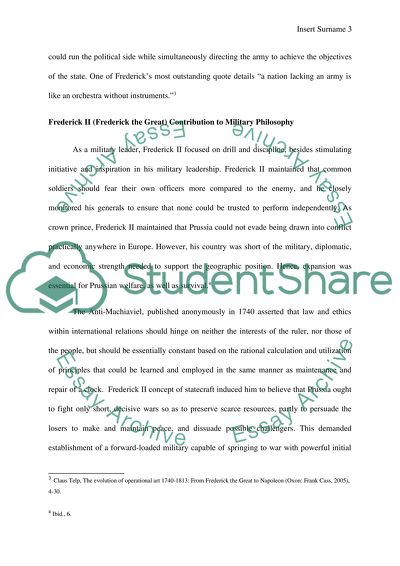Cite this document
(“Frederick II (Frederick the Great) Research Paper”, n.d.)
Retrieved from https://studentshare.org/military/1614911-frederick-ii-frederick-the-great
Retrieved from https://studentshare.org/military/1614911-frederick-ii-frederick-the-great
(Frederick II (Frederick the Great) Research Paper)
https://studentshare.org/military/1614911-frederick-ii-frederick-the-great.
https://studentshare.org/military/1614911-frederick-ii-frederick-the-great.
“Frederick II (Frederick the Great) Research Paper”, n.d. https://studentshare.org/military/1614911-frederick-ii-frederick-the-great.


